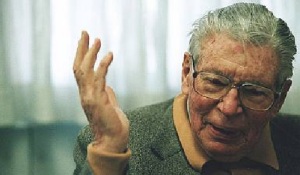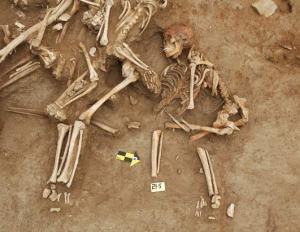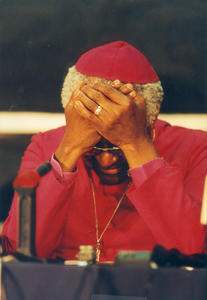In the aftermath of apartheid, an important part of the country's transition to normality was played by the Truth and Reconciliation Commission, magnificently led by Archbishop Desmond Tutu.

Among mountains of harrowing tales of huge personal tragedy and confessions of guilt from all sides of a long conflict, I was especially struck by one man's testimony.
Dr Beyers Naude was a minister and theologian in the Dutch Reformed Church, who in his youth was seen as a rising star and future leader in that community. So it turned out, but not in the way then anticipated.
[caption id="attachment_2022" align="aligncenter" width="300" caption="Dr Beyers Naude"]
 [/caption]
[/caption]For long before his coreligionists, Naude came to see the evil of apartheid for what it was: harmful destructive and contrary to Scripture. He tried to persuade his colleagues of this, but instead of converting them, he found himself first ostracised, later actively harassed by the state. In spite of immense personal hardship, he contrived to continue working to an end of apartheid in whatever way he could. By the final end of apartheid, he was widely seen as one of many heroes of the internal resistance.
Yet in his personal testimony to the TRC, Naude did not speak to his achievements, nor to his suffering. Instead, this man who had contributed so much, apologised to the nation for not having done more. In earlier unusual testimony, white men who had served as conscripts in the South African Army and participated in many atrocities in the townships, spoke not of their guilt, but of their mental trauma they had experienced as a result.
Reflecting on this, I was struck by a thought that I still hold with conviction. Although the popular mind in South Africa and abroad tended to think of the apartheid evils simplistically, in dualistic terms of "perpetrators" and "victims", I saw the reality as far more complex. If Naude, who had done so much, could see himself amongst the perpetrators, and soldiers who were widely condemned for their part, could describe themselves as victims, so could the same be said of all of us.
In one or way or another, in big ways and small, we had all been part of the problem, we were all victims, directly and indirectly. Equally, we all were part of the "system", as beneficiaries and participants of the apartheid process directly, or by contributing to the internal divisions and violence that wracked the black communities. But most importantly, in many different ways, we were all contributing to the solution. We were not all heroes of the resistance: but in the small daily acts of simple humanity, of increasingly ignoring the laws of petty apartheid, by the little acts of simple friendship or mere neighbourliness across the colour line, and by increasingly speaking frankly among our friends and colleagues of the truth we were beginning to see, we all contributed to gradual breakdown of an oppressive "system".

And so it is with the Church. Now, almost twenty years later, as I look at and reflect upon the horrors of the Church's immersion in tales of sexual and physical abuse, I see strong parallels. To view the problem solely in terms of "perpetrators", directly in the cover-ups, and of victims only of physical or sexual abuse, is grossly simplistic. We in the Church now, as we in South Africa then were, are all at some level victims, as we are all perpetrators.
But ultimately, we too can all be part of the solution. In later posts, I will expand on these to show just how this can be.

- Archbishop Desmond Tutu
No comments:
Post a Comment